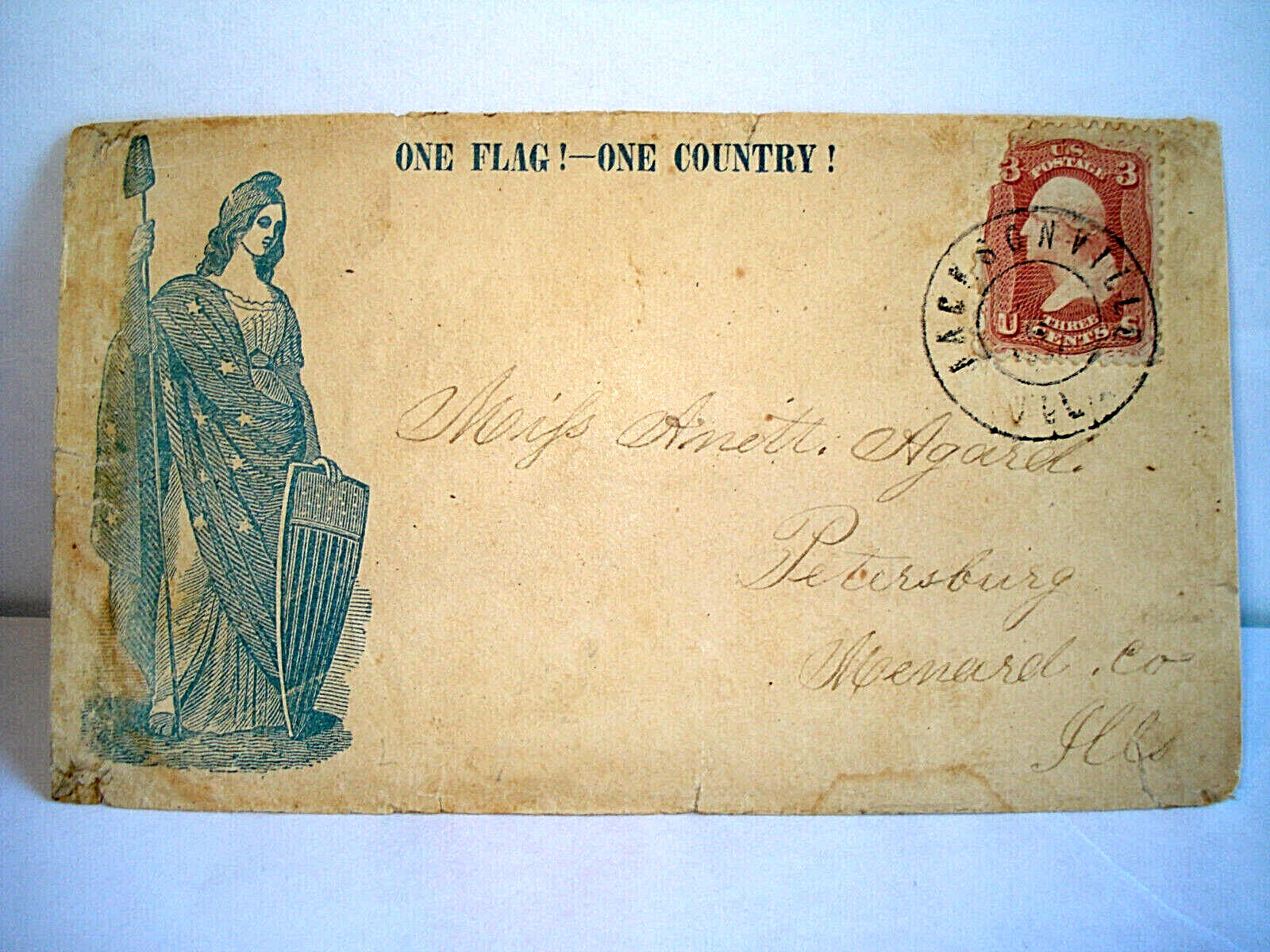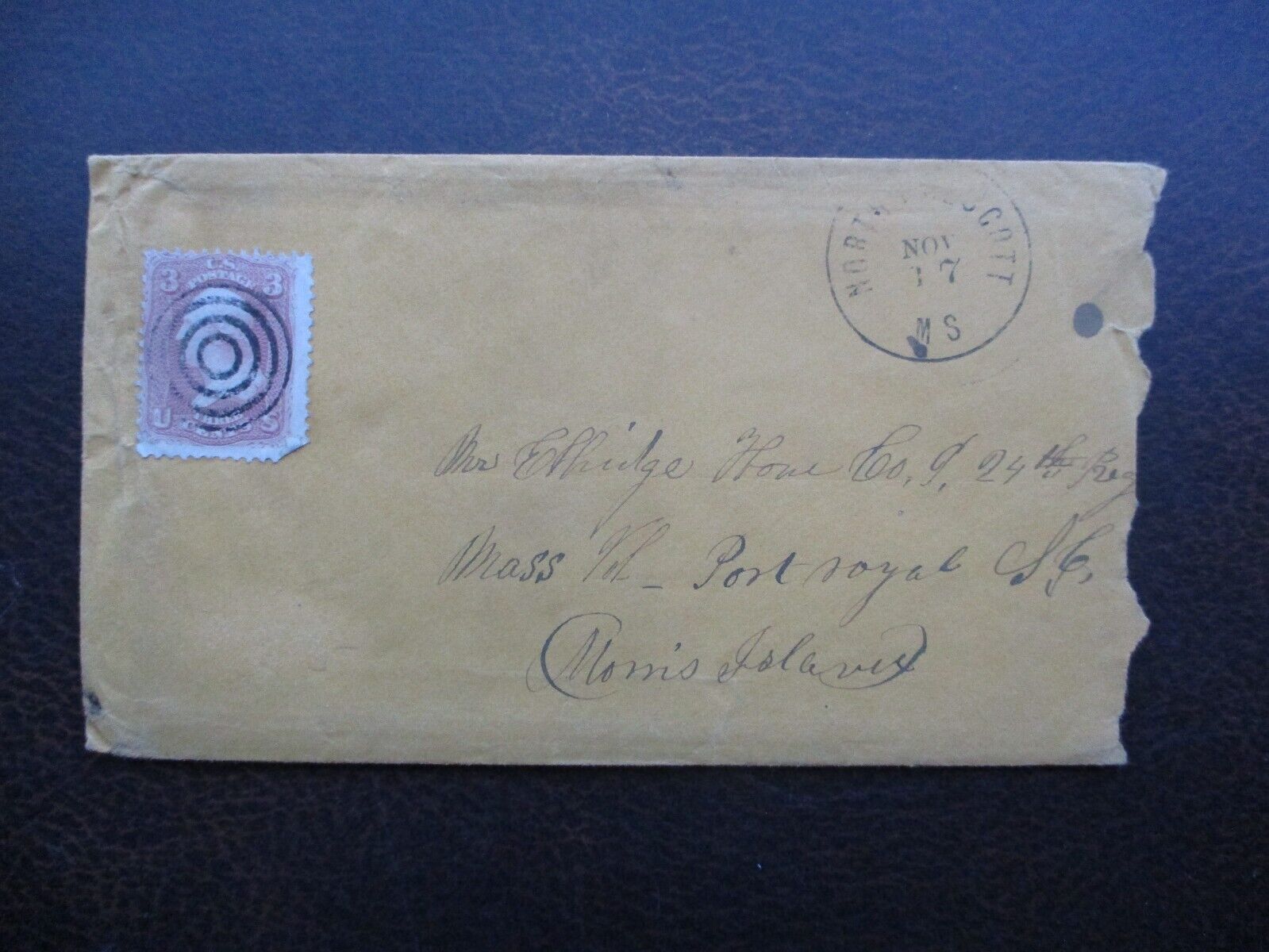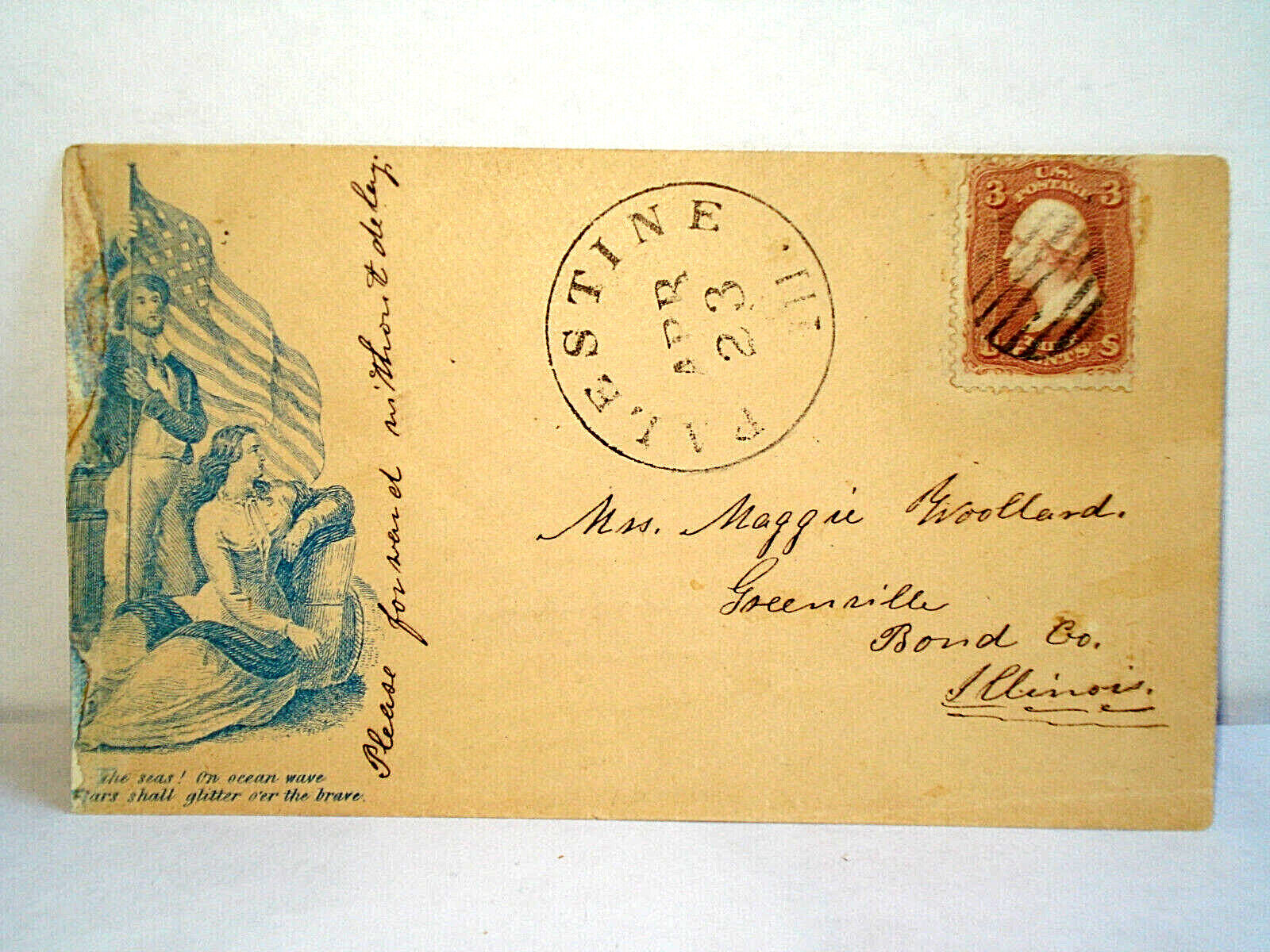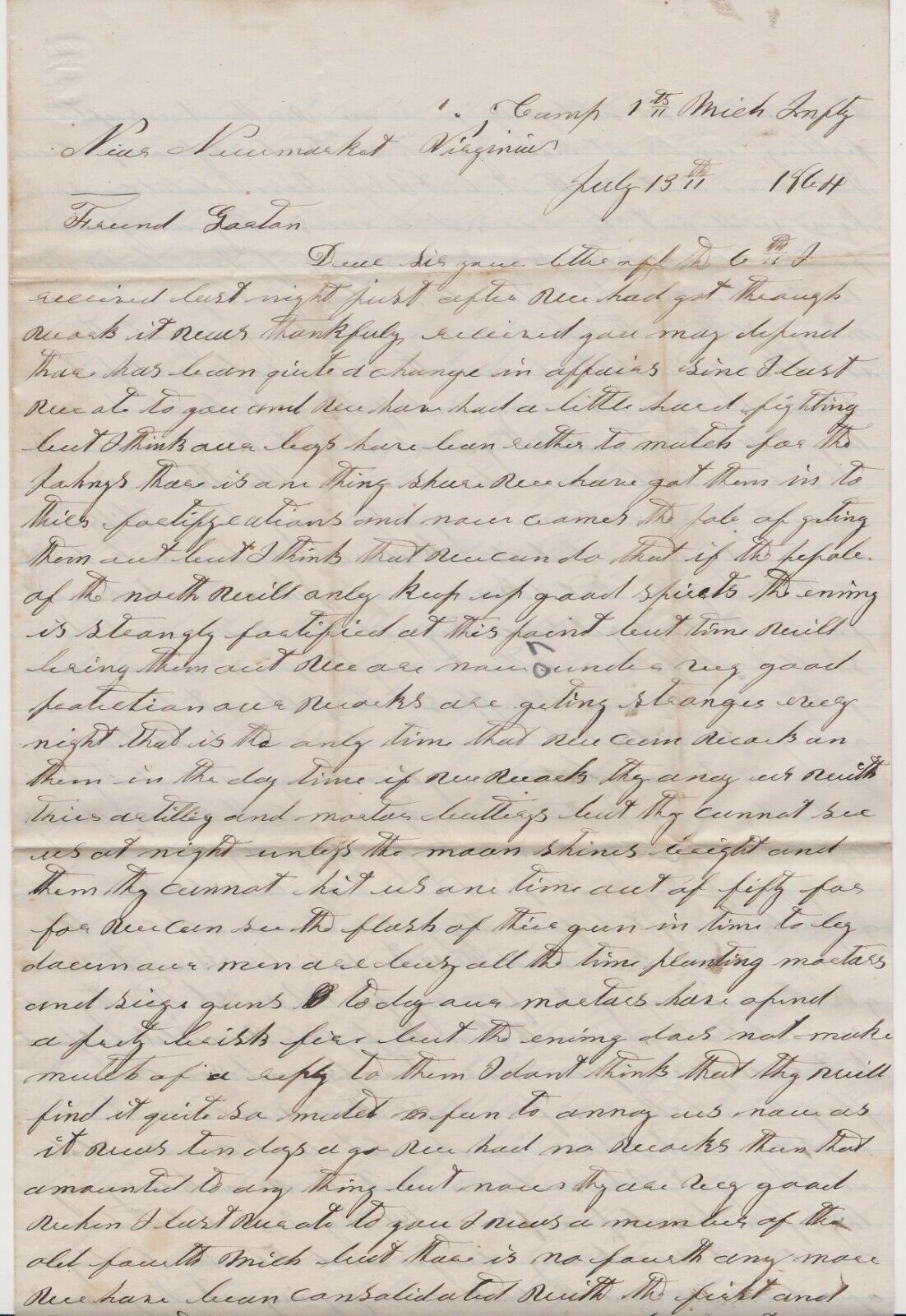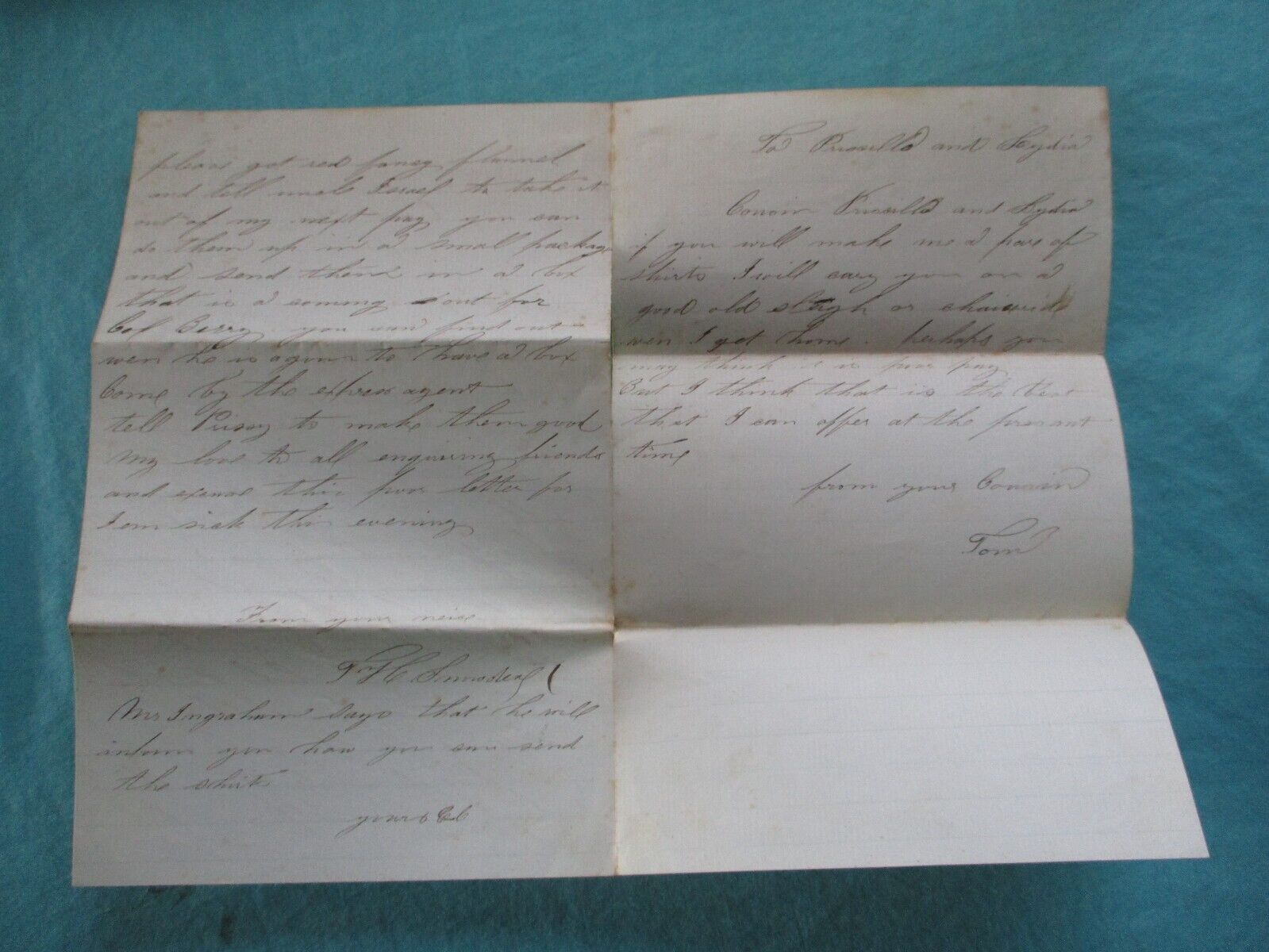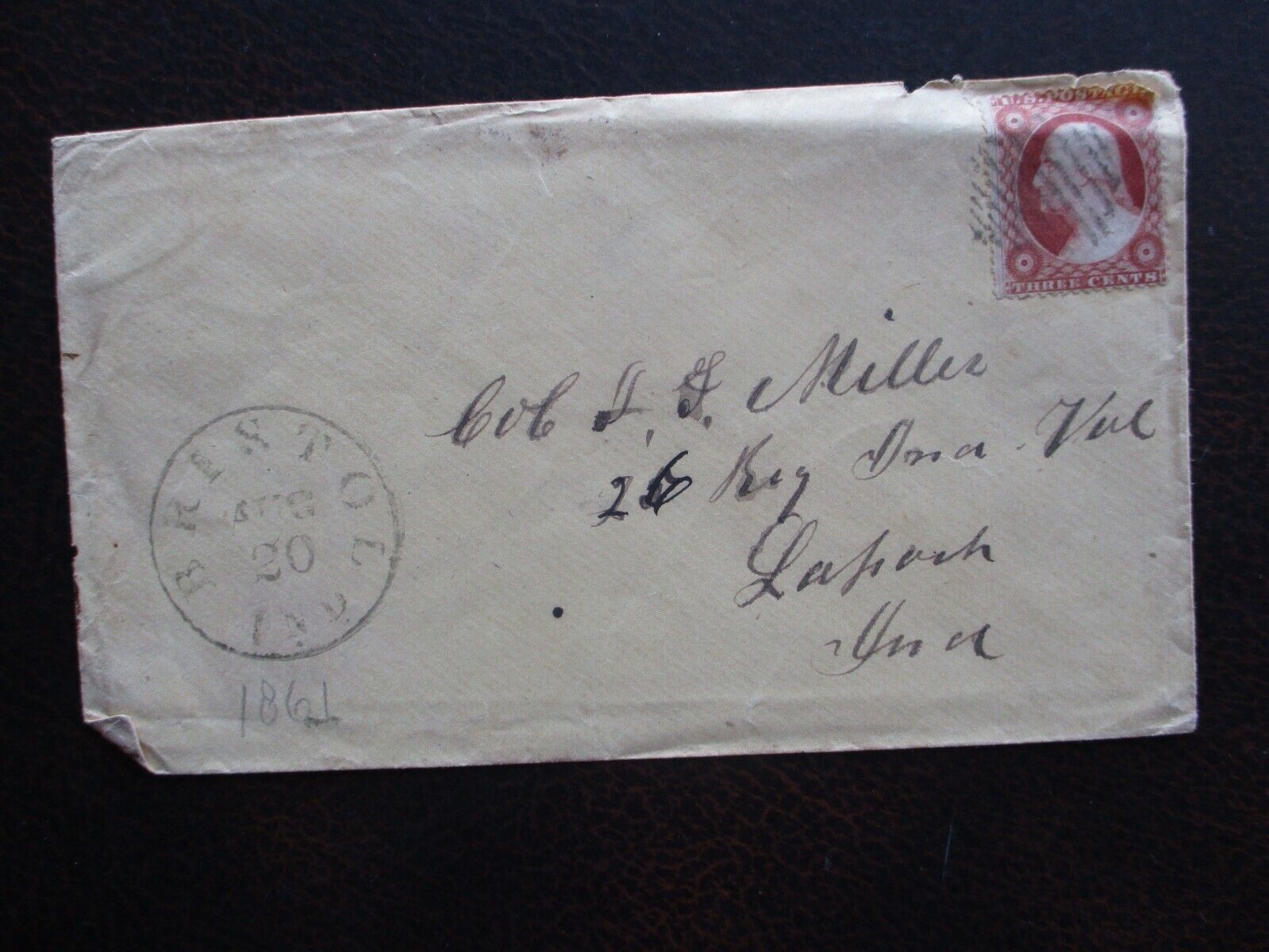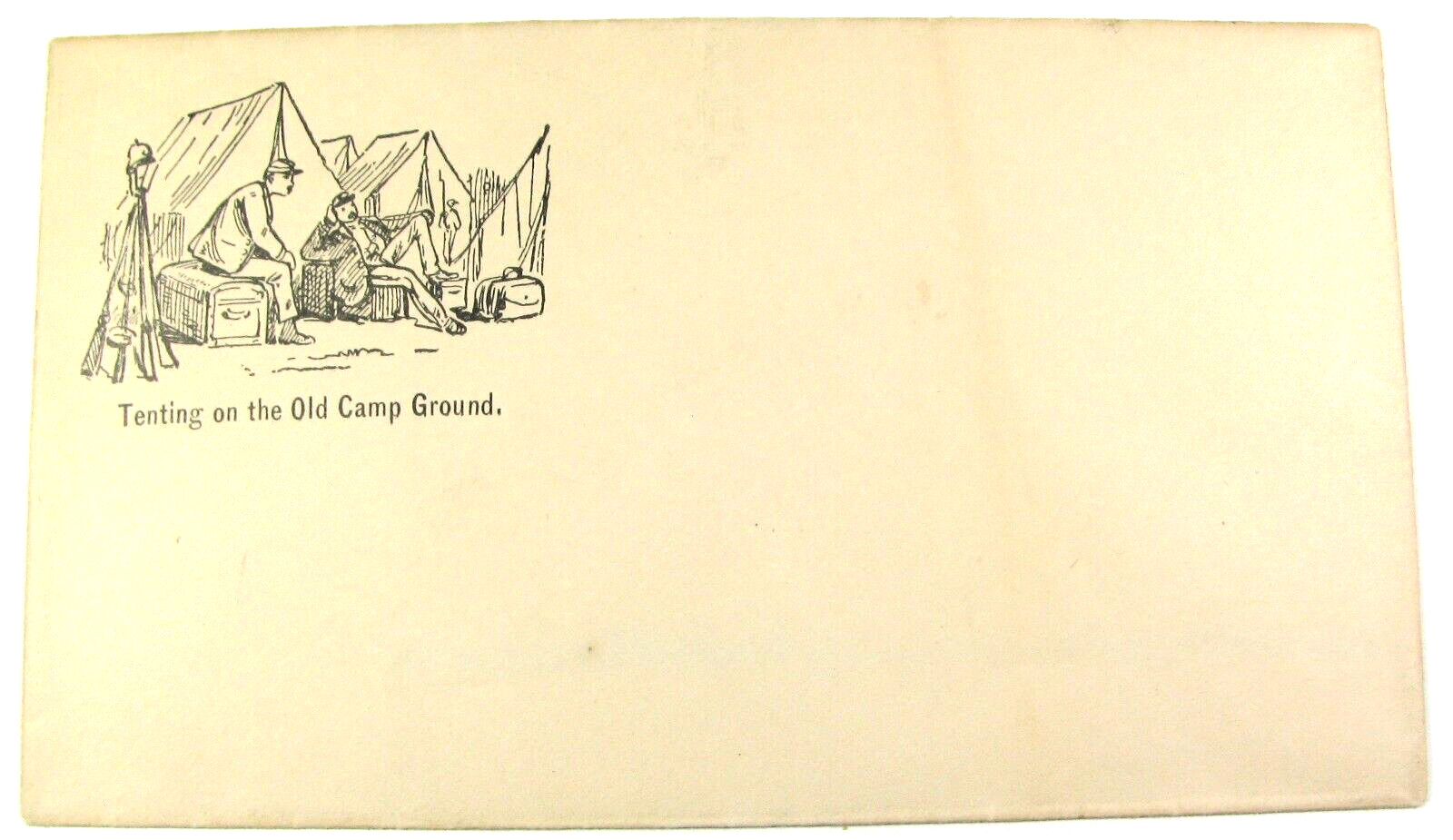-40%
1864 CIVIL WAR Letter Fultonville NY - Great Content re BATTLE OF OLUSTEE FL
$ 11.87
- Description
- Size Guide
Description
4 pg. letter, approx. approx. 4-1/2" x 7", dated atFultonville, NY, March 1864
, from Esther Craig to her brother Albert, (Albert VanDerveer, Surgeon of the 66th NY Infantry), with great content giving details of the wounding and death of their brother at the Battle of Olustee in Florida (in the 115th NY Infantry).
The writer of this letter, Esther VanDerveer Craig, (1830-1909), married John Craig in 1852. They lived in Fultonville, NY.
The letter concerns the death of her brother,
Capt. Garrett VanDerveer,
(1836-1864), Capt. of Co. A, 115th NY Infantry, who was mortally wounded at the Battle of Olustee, Florida on Feb. 20, 1864, and died of his wounds at Beaufort, S.C. on Feb. 24, 1864.
Includes:
"Brother Albert,
W
e are feeling very sad at the loss of our dear brother and bitter as it is, we must bow submissively and implore the ruling Hand of a just God to return you in safety to us.
We have no further news from Beaufort, than when we last wrote, as no steamer has arrived from there, but the little particulars we have gathered from different letters written at that time has caused me to sit down and write them for your sad perusal.
He tore a leaf out of his mem
[orandum]
book just before going into battle, saying his feet were all blistered with the heavy, rapid march they had made, and wished for a clean shirt. When she
[Capt. VanDerveer's wife]
received, he had been dead four days.
The battle was fought two weeks ago yesterday. He lived until the following Wednesday morning, 5 o'clock. Capt. French was lying beside him in the U.S. Hospital and from him we learn his spirit passed away without a struggle. After being wounded, he was conscious that it was mortal, and implored of his men not to leave him behind. Henry Heyser
[Heisser, mortally wounded at Petersburg, Va., June 30, 1864]
and Aleck Lanager of this place carried him four miles in a blanket and tired out; then Henry Keyderling and Solomon Lanager carried him four miles farther, when they met reinforcements, all the while closely pursued by the Rebels. Was ever greater devotion than that? Then they washed him and laid him down to rest and he took each man's hand and kissed it to pay for their kindness and then another for his dear wife, and that is all we have learned that he said.
Col. Sammons wrote to Dr. Ingersoll by the same mail that Capt. VanDerveer had just died and he had given orders to have the body embalmed and was going to send it home, but oh dear, we have but little assurance of ever seeing his remains. John and Billy went immediately to New York and Albany to get a pass for Beaufort, but it was impossible. You are aware of the difficulties attending such occasions, so that I need not mention them here.
The Masons held a special meeting in this place the night after the news became confirmed and decided upon Masonic Honors in case his body should come.
Of course human sympathy is gratifying on such an occasion, but his
dear
,
dear
form is
gone
,
forever
gone
. It is very hard for me to see justice in the taking away of one so noble and useful has he was, while dozens of men in that Reg. are no comfort to their friends or themselves.
Lieut. Davis of Company A was mortally wounded, and after carrying him seven miles, he was so exhausted and his pain was so excruciating that he begged of them to lay him down and let him die. surely her grief must be harder to bear than Maggie's, as she has three small children and depended upon his pay as her only means of support.
I never thought for a moment that Gare would never come home. My faith was so strong that a man that made so many sacrifices of home and friends as he, and went to war for pure love of country and duty, would be protected and returned to us in safety. But alas for human hopes all laid desolate for the rashness of a Gen. who did not know his business or else was a traitor; one looks about as definite as the other.
And now dear brother, we have brought out sacrifice and laid it upon the altar. Will you send in your resignation and come home to us. It seems to me I can never endure your staying in the army another month. We will often write. Do not forget to answer.
Yours in love,
Esther Craig"
Very Fine.
[NOTE - BELOW IS AN ACCOUNT OF CAPT. VANDERVEER'S FROM AN 1865 REGIMENTAL HISTORY OF THE 115TH NY]
[CW/D]
NO SHIPPING OUTSIDE OF THE U.S.
Captain Garret Van Deveer resided in the village of Fultonville, Montgomery Co., was a coal merchant by occupation, and like many others, left a young wife, a large circle of warm friends and the many endearments of home to take up the sword in defense of our country. He entered the service as Capt. of Co. A, which rank he held to the day of his death. At Olustee, Fla., while gallantly cheering on his men he was badly wounded through the thigh, and although weak and pale from the loss of blood, refused to leave the field; and steadying himself with his sword continued to fight. When the conflict was raging the most furiously, and when the red tide of blood drenched the soil like rain he was shot through the right lung and fell to the ground under a mortal wound. His faithful comrades bore him through the swamps a distance of nineteen miles, when he rode all day and the most of the next night in an open car, never as much as sighing, though suffering extreme pain. At Jacksonville he was placed on a hospital boat and conveyed to Beaufort, S.C. When he breathed, the blood filled his mouth, and as he lay it soaked the sheets and bedding; still the brave man never complained. Upon reaching Beaufort, Chaplain Harris came up to the captain and said; "Are you wounded badly?" He replied, "some think I'm not, but I think I am." He had barely reached Beaufort when death came to his relief, and he died on the 24th day of February, 1864, and was buried beneath the soil where treason first breathed hostility to the Union. The funeral was largely attended, and the military and the order of Free Masons, of which he was a member, accompanied his honored remains to the grave. Col. Sammons desired to take the remains of the captain home; so the corpse was taken up and sent to Hilton Head, and inclosed in a metallic coffin. It was not permitted to go on the steamer at that time, and several sick and wounded soldiers from the regiment buried him in the soldiers' grave-yard at Hilton Head, S.C.
General Seymour
caused a redoubt in the fortifications at Jacksonville to be named Van Deveer, in honor of his memory, and noticed the captain's
gallantry in general orders
. Had he lived, a Lieut. Col's commission would have been his. A brother served as an officer in the Union army."
- from
The Iron Hearted Regiment: Being An Account of the Battles, Marches and Gallant Deeds Performed by the 115th Regiment N.Y. Vols.
- written by 1st Lt. James H. Clark, Company H, in 1865.



